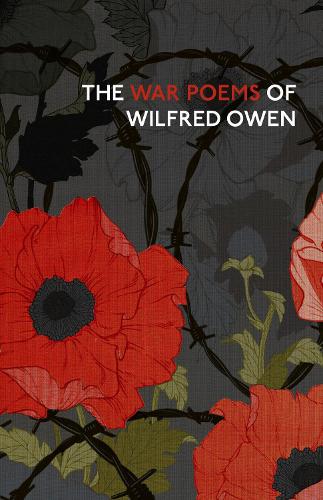
The War Poems Of Wilfred Owen
(Hardback)
Available Formats
Publishing Details
The War Poems Of Wilfred Owen
By (Author) Wilfred Owen
Edited by Jon Stallworthy
Vintage Publishing
Vintage Classics
8th January 2019
27th September 2018
United Kingdom
Classifications
General
Non Fiction
821.912
Physical Properties
Hardback
144
Width 138mm, Height 204mm, Spine 18mm
237g
Description
Wilfred Owen was the greatest poet of the First World War - his best work is collected here, published in a new hardback edition to commemorate the end of the war that Owen has taught us never to forget 'Orpheus, the pagan saint of poets, went through hell and came back singing. In twentieth-century mythology, the singer wears a steel helmet and makes his descent "down some profound dull tunnel" in the stinking mud of the Western Front. For most readers of English poetry, the face under that helmet is that of Wilfred Owen.' Professor Jon Stallworthy, from his Introduction. When Wilfred Owen was killed in the days before the Armistice in 1918, he left behind a shattering, truthful and indelible record of a soldier's experience of the First World War. His greatest war poetry has been collected, edited and introduced here by Professor Jon Stallworthy. This special edition is published to commemorate the end of the hellish war that Owen, though the hard-won truth and terrible beauty of his poetry, has taught us never to forget.
Reviews
Others have shown the disenchantment of war, have unlegended the roselight and romance of it, but none with such compassion for the disenchanted or such sternly just and justly stern judgment on the idyllisers. * Guardian, 1920 *
For me, he is the greatest of all the war poets.... it is Owen's intense respect for the soldier that makes his poetry so powerful. Those who did not return have their meticulously maintained stone memorials on the fields of Flanders. But their memorial in our minds is largely built by Wilfred Owen -- Jeremy Paxman * Spectator *
The greatest of all the War Poets This editionis a must for every poetry lover -- Emma Lee-Potter * Independent *
Author Bio
Wilfred Owen was born in Oswestry, a Shropshire town close to the Welsh border, on 18 March 1893. Intended first for the church, Owen finally decided at the age of 20 that literature meant more to him than evangelical religion. He was working as a tutor in France when Germany invaded Belgium and war was declared in 1914. Owen enlisted a year later, was commissioned into the 5th (Reserve) Battalion, Manchester Regiment in 1916, and crossed to France at the end of that year. By mid-1917 he was diagnosed as suffering from shellshock, and was invalided back to Craiglockhart War Hospital in Scotland, where he met Siegfried Sassoon. He wrote some of his most powerful war poetry at the start of 1918 before he was declared fit to return to France. Owen was awarded the Military Cross for his service in the last British assaults on the German line, but he did not live to wear it or to see in print most of the poems that would make his name. In the early morning of 4th November 1918, his platoon was caught in heavy fire and Wilfred Owen was killed, only seven days before peace was declared. Jon Stallworthy was born in 1935. He was Professor Emeritus of English at the University of Oxford, a Fellow of Wolfson College, of the British Academy, and of the Royal Society of Literature. He published eight books of poetry, as well as translations from the Russian of poems by Alexander Blok and Boris Pasternak, and prize-winning biographies of Louis MacNeice and Wilfred Owen. Professor Stallworthy died in November 2014.
